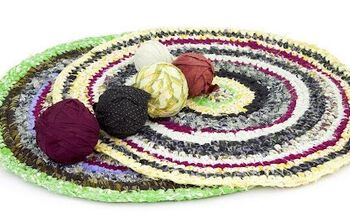How to Use Minimalism as a Tool to Build Wealth

You might think that minimalism means ditching materialistic life altogether.
However, it is in reality more about redirecting your resources towards the things that matter. There is no denying that money can enhance certain aspects of our lives and provide us with opportunities.
Let’s talk about how to build wealth upon minimalistic principles.
Like most of us, I have dreams that rely on a certain level of financial flexibility. Those dreams are meaningful to me because they align with my values and fulfill, but they still cost money.
I believe that the simplest joys and the deeper meanings in life cannot be bought, but building wealth allows us to lead the life we want. Minimalism has helped me find the balance between the two.
There are so many things that can distract us from our goals, so it is crucial to be intentional. I used to spend so much money on clothes I would not wear and outings I would not enjoy, because I thought that as long as my bills were getting paid, I was free to spend my money on whatever I wanted.
But over the years, I really did turn things around, reflecting on what matters to me, what sparks my curiosity and my passion, and what brings me genuine joy. Now I keep my lifestyle low maintenance so that I can prioritize those things.
Today I want to talk about the expenses that I cut out from my life that made the most impact on my finances, and I believe these are the best ways to build wealth by being a minimalist.
1. Keeping lifestyle inflation under control
When our income goes up, we feel tempted to reward ourselves by spending more and more. This constant cycle of wanting to upgrade our lives and seek happiness from external sources does not do us any good, because those upgrades are not worth it.
No restaurant is that much better than pizza night at home, and no expensive piece of clothing is that different from what you already own. Spending more does not necessarily mean being happier.
Make sure to figure out what is our baseline happiness and how much that costs. This is not about restriction. Maybe you love getting your groceries delivered or getting takeout – if that is important to you, include that in the budget.
Having this rough idea will help us to be more intentional in our spendings and keep our lifestyle inflation under control.
2. Cutting out excessive entertainment
Having access to the city has been really cool. There is always so much going on, but surprisingly, my lifestyle has not changed that much. I just do not feel the need to spend hundreds of dollars just to go out for the sake of going out.
This was not always the case. I used to go out every Friday night or weekend and spend lots of money on empty outings. There is so much pressure to be always doing something, booking the next holiday, planning for the next big thing, but are we really getting value from this, or are we just trying to distract ourselves?
I now only spend money on moments that truly feel special to me. I know this might sound crazy, but I actually have a lot more fun organizing my closet or taking my dogs for a long walk. These are the small things that make me truly enjoy my life, and that is what matters.
3. Not investing in status symbols
My first car was a 1997 Dodge pick-up truck with a million problems, but it got me and my friends around town, and that was all that mattered. My mindset really has not changed that much: as long as my car gets me from point A to point B, then I am happy.
In a society that places so much value on the things that we have, it makes sense that we tend to invest in creating this picture-perfect life. However, I always wondered how much of that was for them and how much of it was for everyone else to judge. Think about it: if you were stranded alone on an island, would you really care about the brand of your car or your clothes?
If material things bring you value and joy, go for it. But I believe we should all look at our spending habits and question ourselves to see if we are spending our money towards a life that we truly value.
4. Eliminating impulse purchases
When I started decluttering, I noticed that most of the stuff I was getting rid of were impulse purchases, such as souvenirs or Black Friday sale tech stuff. Impulse purchases are often overlooked because they are usually not a big splurge but they do add up over time and stop you from saving up.
I always talk about setting up a barrier between you and the purchase for a delayed gratification, but what is even more important is setting up financial goals. Having a clear idea of where you are going makes everything else feel like a distraction and stops you from being influenced.
So what are your short-term and long-term goals? Are you prioritizing financial security, freedom, experiences, personal growth, or maybe supporting your family. And why is this goal important to you?
5. Not upgrading unnecessarily
I have previously considered hiring extra people to delegate parts of my work on my videos, but then I realized that I love creating videos, from start to finish, even the hours and hours of editing. Hiring a team and expanding my channel just does not fit my interests.
A lot of us grew up in a society where more is better. So we feel the pressure to scale up that business, move into a bigger house and grow our social media and say yes to all the opportunities.
Are we willing to deal with the challenges and complexities that come with that as well? And when is it okay to say, that is enough for me? Sometimes more really is better, but I believe mindfulness is key. Scaling up and expanding is really not the only way that we can grow. True abundance is about appreciating what we have now and comes from within.
How to build wealth
I hope I have inspired you to look more closely into the way you are spending. What are your priorities in life? What are your simple pleasures that do not cost anything? Let me know in the comments!
Next, learn 8 Easy Ways to Upgrade Your Life on a Budget.





















Comments
Join the conversation